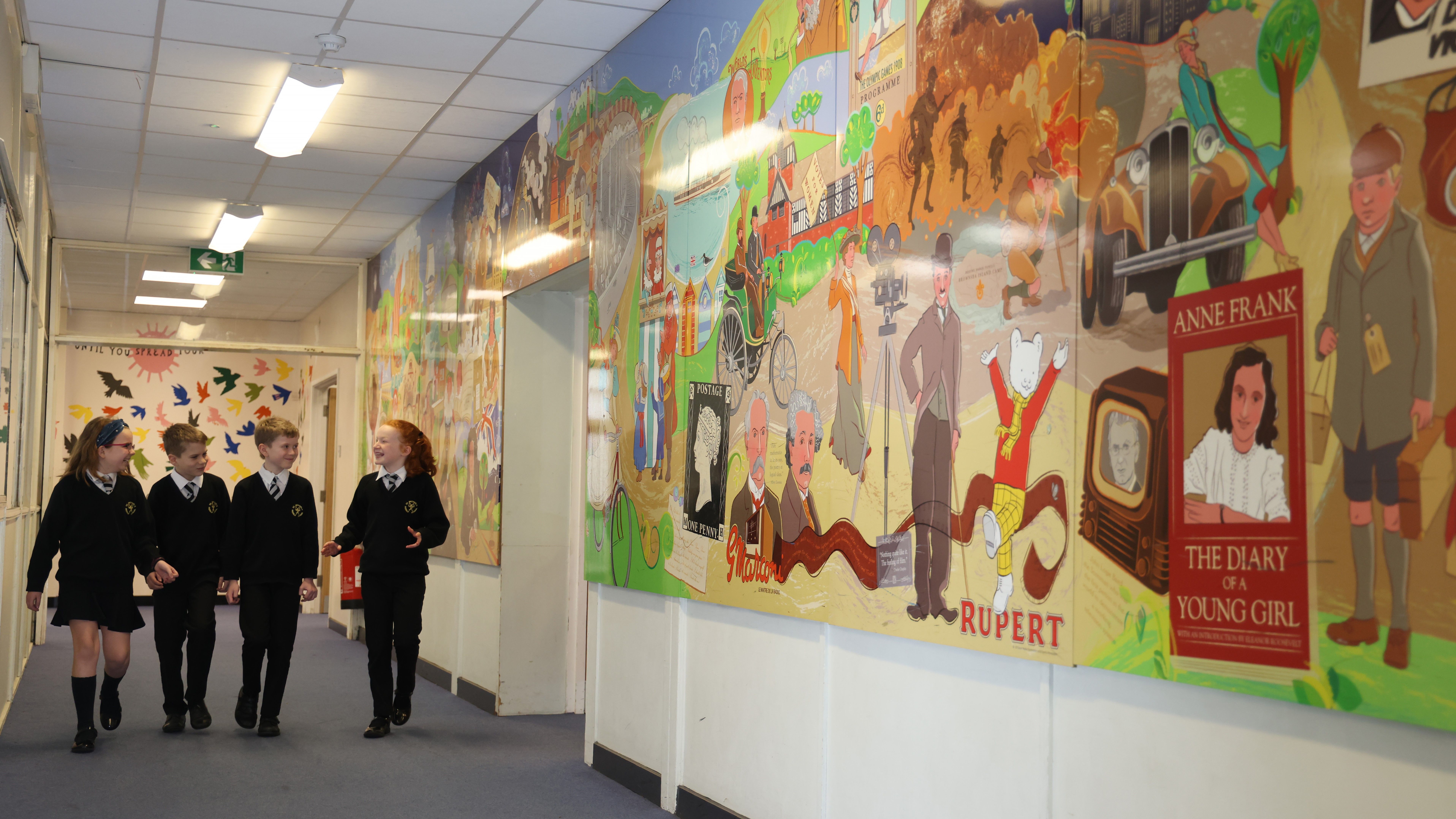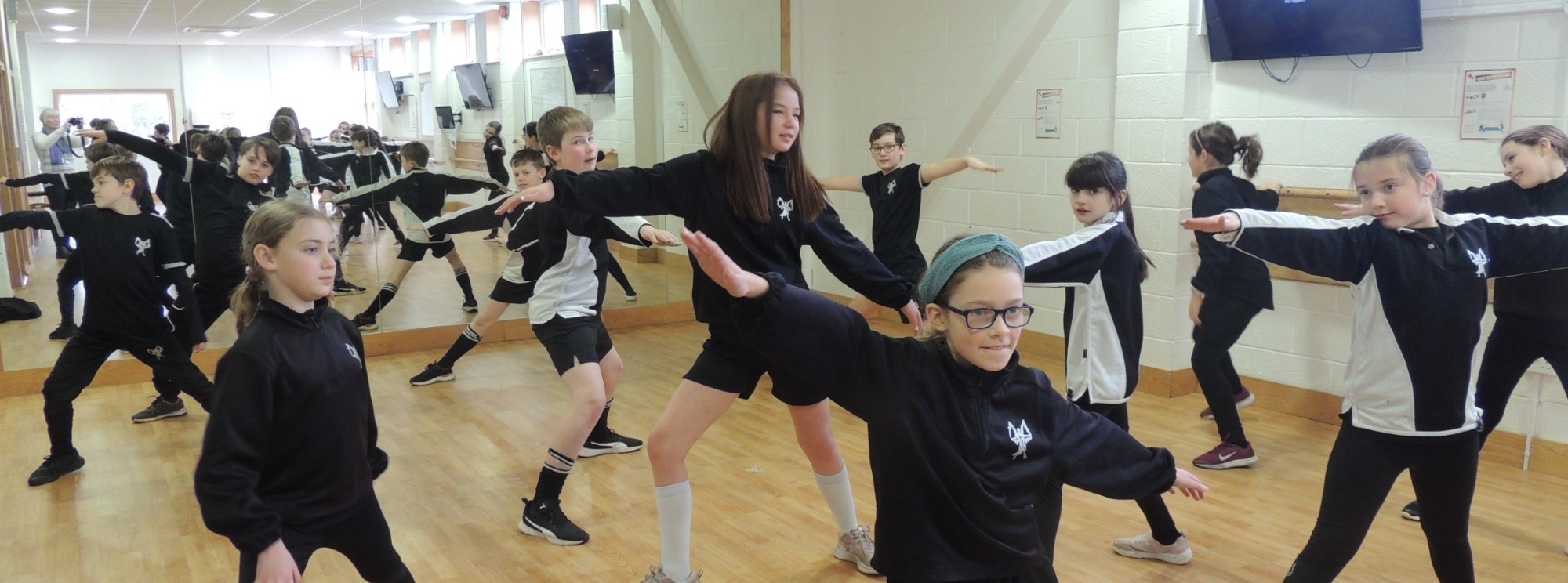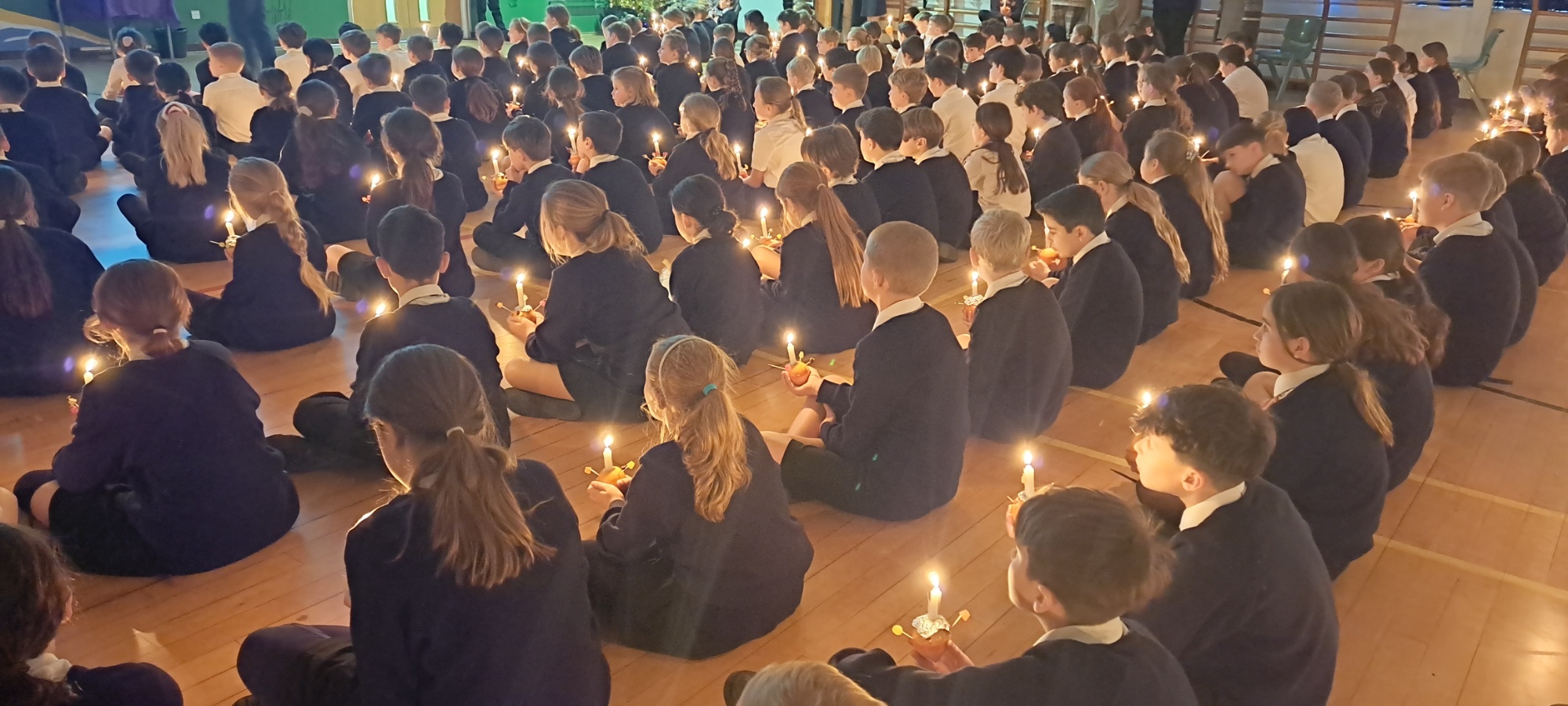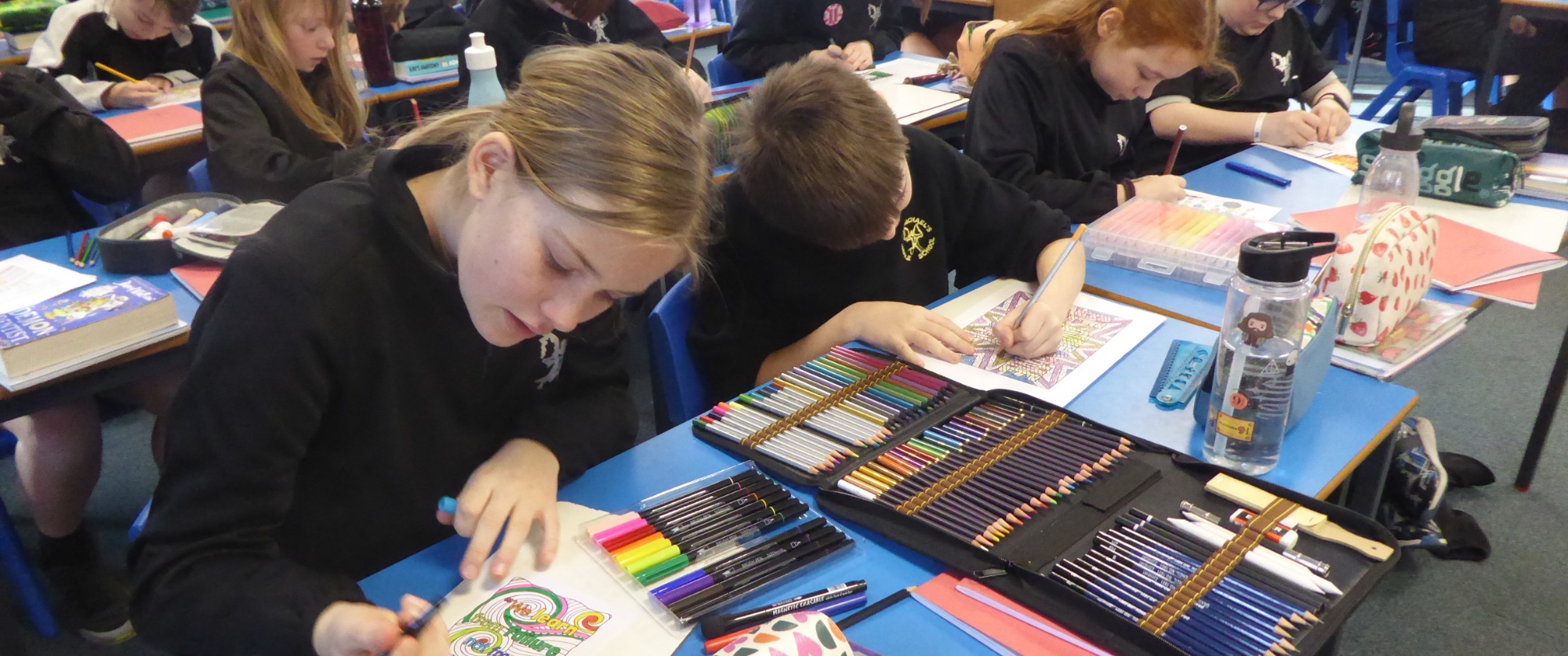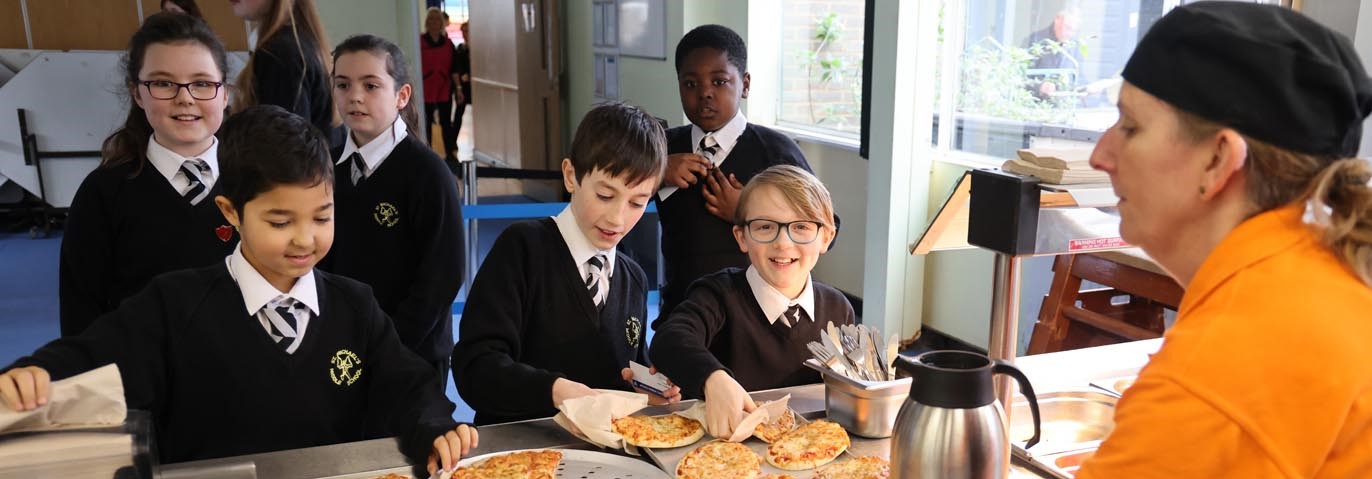Humanities
Geography
Subject Statement
Geography at St Michael’s gives pupils the opportunity to develop knowledge and understanding of the planet Earth and its peoples. The curriculum engenders awareness of the world around us, independent thinking and empathy towards others. The Geography Department seeks to foster a spirit of curiosity about the location of geographical features and a sense of place. Pupils undertake a variety of learning activities which will allow them to develop opinions and share them. Teachers help to prepare pupils to be active citizens in a changing world.
Core Values
Geography builds ASPIRATION by:
By using case studies and units of work on a local, regional, national and international scale thus providing pupils with a global view.
Giving examples of developing and developed countries to encourage pupils to consider their position in the world and how it may change.
Encouraging pupils to apply their skills from other subjects to develop confidence in their abilities in a practical setting.
Geography builds BELIEF by:
Encouraging pupils to consider other religions and cultures. This enables pupils to reflect on their own belief systems and empathise with others.
Giving pupils credit for justifying opinions and conclusions that they have based on the evidence available to them.
Encouraging pupils to be proactive learners.
Geography builds CREATIVITY by:
Allowing pupils to use a number of methods of writing. For example: writing a diary of somebody living in a slum settlement, imaging life as the person in a photo, etc.
Giving pupils opportunities to use a range of different resources that are open to individual interpretation; pupils can express their ideas in a number of ways.
Including open-ended tasks allowing pupils to decide the outcome of their enquiry.
Wider Shared Values
St Michael’s is a Church of England school that believes that supporting children’s development of character and values, including the sorts of values that are shared commonly by British people, is an essential part of equipping young people to thrive as citizens in the world of the future. Geography actively supports this by:
-
Reflecting on the lives of other people in different countries and societies. This includes the role of women and children and can involve investigating other systems of governments, the education systems, health care systems etc.
-
Developing mutual respect and tolerance of other faiths and beliefs. This includes investigating places where this is not the case.
-
Understanding the role of institutions that are set up in this country.
Where it all fits in
If you are working well in this subject these are the skills you are learning:
-
Research skills - finding out about different areas of the world using a number of sources.
-
Data analysis - manipulating data to give information about development and climate and being able to compare different areas.
-
Teamwork and communicating through various classroom activities.
-
Use of computer-based GIS to identify patterns of land use and physical processes.
-
Persuasive writing and report writing skills.
-
Use maps, atlases, globes and digital/computer mapping to locate countries and describe the features studied.
-
Use the eight points of a compass, four and six-figure grid references, symbols and key (including the use of OS maps), to build their knowledge of the United Kingdom and the wider world.
If you like this subject then these are some of the jobs you can go on to:
- Cartographer.
- Commercial/residential surveyor.
- Environmental consultant.
- Geographical information systems officer.
- Planning and development surveyor.
- Secondary school teacher.
- Town planner.
History
Subject Statement
Studying History at St Michael’s provides an opportunity for our pupils to learn skills which are not confined to the study of the past. Within our schemes of work we must provide time to develop skills of analysis. Analysis is invaluable in many jobs, and the ability to analyse and then prioritise information is vital to decision-making. By providing our pupils with opportunities to develop these skills through the study of history, it not only provides a broad skills set, an open and tolerant mind, but it also keeps career options open.
There is a stigma attached to History that it is based entirely in the distant past, however we teach pupils that in order to make sense of current affairs it is important to study the past, as everything which is happening around us has been influenced by, and is a direct result of, that which preceded it. For this reason, at St Michael’s, we teach the pupils to see how the study of History is explicitly relevant to all of us.
Core Values
History builds ASPIRATION by:
Through aiming high in History we inspire pupils to achieve their very best. In order to inspire pupils to reach their full potential, we must model behaviour and expectations for them to follow. In lessons, therefore, we must insist that pupils complete work to their very best standard. Through insisting on high standards, we uphold the value of aspiration across the whole curriculum.
History also encourages aspiration through the learning opportunities available to our pupils. We encourage our pupils to fully embrace each learning opportunity with an inquisitive and analytical mind as these skills as transferrable across the curriculum.
History builds BELIEF by:
History highlights different beliefs and perspectives throughout time. As a result of this, pupils are exposed to the value of belief in a number of ways. They are given the opportunity to explore the beliefs of other cultures and civilisations. One such example is in Year 7 History; pupils are exposed to Medieval art with a focus on religion and are asked to analyse the art and what we can learn about religion at that moment in time.
By exploring different cultures and their beliefs, pupils are given the scope to explore their own belief.
In History we also encourage pupils to ‘have a go’ as quite often in History there are many different interpretations of the past. This encouragement supports the core value of ‘belief’ as it places value in their own self-belief.
History builds CREATIVITY by:
History offers different experiences that are linked with other creative subjects. For example, KS2 History now provides greater scope to develop creative writing through; writing a smugglers’ diary & illustrating it; writing a newspaper article about discovering the Maya ruins; considering what it must have been like for the monks as Lindisfarne when the Vikings invaded and expressing their thoughts through speaking and listening activities…
History requires and encourages pupils to be creative when studying sources. For example, in Year 8 History pupils examine sources relating to Oliver Cromwell and must form their own opinions of the man. They must approach tasks such as these with a creative mind in order to form their opinions.
Wider British Values
St Michael’s is a Church of England school that believes that supporting children’s development of character and values, including the core British values of democracy, mutual respect, liberty and the rule of law, is an essential part of equipping young people to thrive as citizens in the world of the future. History actively supports this by:
- Teaching pupils about their shared past. We explore the founding of British identity through the movement and integration of different cultures from the indigenous Celts to the Angles, Saxons, Vikings and Normans as well failed attempts at sovereignty including the Spanish Armada.
- Learning about the formation of the modern constitutional monarchy throughout the Tudor and Stuart periods
- We look at the formation of the United Kingdom during the Stuart period
- We learn about the consequences of a lack of tolerance for people of different beliefs and religion through the turbulence during the establishment of the Church of England during the Tudor times and the Civil War in the Stuart times
- We encourage a respect for different cultures in the past including ancient cultures of the Greeks and the Mayans
- We teach pupils how to gather information and to analyse their integrity (UNCRC Article 17 – access to information from mass media).
- In History we encourage pupils to conduct further research into areas which spark their interest. This could be within lessons, as homework or through self-study (UNCRC Article 29 – goals of education). Through this encouragement, we are supporting our pupils’ development of their own interests and talents, as well as becoming tolerant and well informed individuals with regards to other cultures.
Where it all fits in
If you are working well in this subject these are the skills you are learning:
- Research skills– you will be able to find out more about the past through collecting information from a range of sources. You will be able to analyse these sources critically to evaluate their authenticity and value.
- Analytical skills – you will develop your ability to analyse different sources of information and opinions from other historians. Your capacity for solving problems and thinking creatively will also develop through studying history.
- Teamwork and communication skills – you will develop these skills through: possible research projects both in and outside of the classroom; presentations given in teams; discussions with peers about historical interpretations of the past ... Group work will also facilitate you furthering your ability to discuss ideas in groups, and to negotiate, question and summarise.
- It will be important for you to be able to construct an argument and communicate findings in a clear and persuasive manner, both orally and in writing. History provides an opportunity to practice this skill.
- You will be given the opportunity to develop your capacity to think objectively and approach problems and new situations with an open mind. Thinking objectively also enables you to have an appreciation of the different factors that influence the activities of groups and individuals in society.
If you like this subject then these are some of the jobs you can go on to:
Jobs directly related to history include:
- Heritage manager
- Historic buildings inspector/conservation officer
- Museum education officer
- Museum/gallery curator
- Museum/gallery exhibitions officer
- Secondary school teacher
Jobs where history would/could be useful include:



